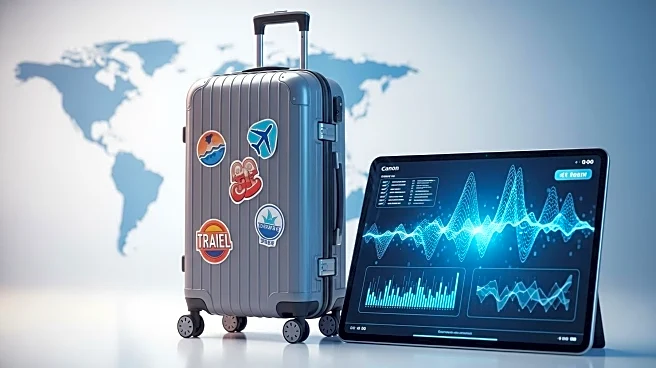What's Happening?
At Griffith University's Griffith Institute for Tourism, PhD researcher Mengni Fu is investigating how Generation Z, born between 1995 and the early 2010s, will influence the future of the tourism and hospitality industry as both consumers and employees. Her research highlights the importance of understanding Gen Z's preferences and expectations, which are crucial for tourism operators, educators, and policymakers aiming to remain competitive. The study reveals a preference for collaboration between people and technology, rather than fully automated or entirely human service models. In China, hotels are integrating robotics and AI, while in Australia, mobile-based solutions are more prevalent, with Gen Z showing curiosity but caution towards robotics.
Why It's Important?
The insights from this research are significant for the tourism and hospitality industry, which faces challenges such as workforce shortages, rising costs, and the demand for contactless services. Understanding Gen Z's expectations can help industry stakeholders align technology investments with consumer expectations and market maturity. Educators are encouraged to integrate technology skills and emotional intelligence into training, while policymakers should focus on strengthening digital infrastructure and regulation. This research is crucial for preparing Gen Z consumers and employees to navigate hybrid human-tech service environments, ensuring the industry's competitiveness and resilience.
What's Next?
Christine Fu's research aims to inform how large-scale events, such as the 2032 Brisbane Olympic and Paralympic Games, can drive innovation in tourism. She plans to propose new projects exploring how these events can catalyze technology adoption, workforce transformation, and visitor experience enhancement. Her work is expected to guide operators in adapting to rapid technological changes and maintaining a competitive visitor economy shaped by Gen Z.
Beyond the Headlines
The research underscores the importance of emotional intelligence in tech-integrated environments, a capability that is currently undervalued by many education providers. This highlights a need for a shift in educational focus to better prepare students for future workplace dynamics. Additionally, the study suggests that global events can leave lasting legacies in technology adoption and workforce transformation, offering opportunities for long-term industry growth.









